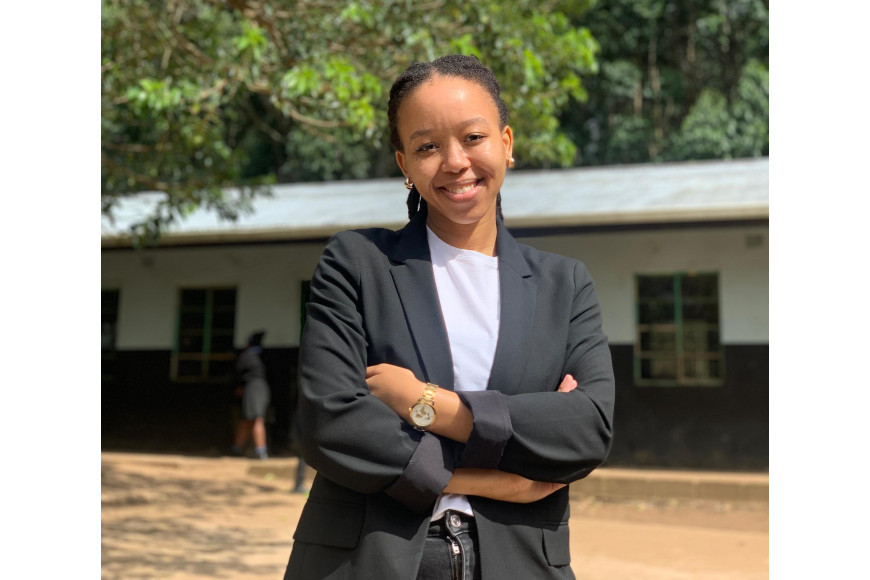When 24-year-old Nqobile Ngcobo walks across the Durban University of Technology 2025 Autumn Graduation stage on 19 May 2025, she won’t just be celebrating her Master of Applied Sciences in Food and Nutrition, she will be celebrating a journey deeply rooted in purpose, passion, and a powerful sense of responsibility to her community.
Hailing from Avoca Hills, Nqobile’s academic journey has been closely tied to the Durban University of Technology (DUT), where she has completed her national diploma, advanced diploma, postgraduate diploma, and now her master’s. Her long-standing relationship with the university—and particularly with her supervisor, Prof Ashika Naicker—has shaped her academic path and enabled her to flourish. “I knew I would be in good hands and finish in record time under her guidance,” she says with pride.
Currently working as a graduate assistant in the Department of Food and Nutrition, Nqobile is also finalising her PhD proposal, further solidifying her commitment to transforming the food landscape in South Africa—one bowl of porridge at a time.
Her master’s research was not just an academic exercise; it was a response to a national crisis. “The reality that many school children attend classes on empty stomachs deeply troubled me,” she says. “South Africa is food insecure at a national level, and I wanted to do something about it.”
Her study aimed to develop a cost-effective, nutritious instant breakfast cereal for schoolchildren participating in the National School Nutrition Programme (NSNP). Through fermentation techniques, product development trials, nutritional analysis, and sensory evaluations involving learners from four schools in KwaZulu-Natal’s iLembe District, she crafted a locally inspired solution made from indigenous grains such as sorghum and millet.
The research wasn’t without its hurdles. From the logistical challenges of reaching remote schools to the intricacies of obtaining parental consent and perfecting the fermentation process, Nqobile faced each obstacle with strategic planning and resilience. With support from multiple departments—biotechnology for lab access, chemistry for nutritional testing, and her dedicated supervisor—she not only completed her research in record time but also deepened her appreciation for the power of collaboration in academia.
Her work supports multiple Sustainable Development Goals, including Zero Hunger, Good Health and Well-being, and Quality Education. “My goal was to improve the nutritional status of school children while directly addressing food insecurity in South Africa,” she explains.
A dynamic researcher and rising academic, Nqobile has already made her mark in the field. She delivered a masterclass at the Childhood Obesity Prevention Initiative (COPI) Summit in Johannesburg, presented her findings at the Nutrition Congress in Durban, and showcased her work at the South Africa-Japan University Forum (SAJU 6) in Stellenbosch. She has also submitted a manuscript for publication in a peer-reviewed journal.
For students pursuing academic excellence, Nqobile offers this advice: “Hard work pays off. It’s better to do the hard work now and enjoy life later. You’d rather be a professor who bakes than a baker who wishes they were a professor.”
As she looks ahead, Nqobile sees herself thriving as a food and nutrition lecturer, passionately teaching, publishing, and continuing to innovate in the field of food science. “Ultimately, my goal is to contribute to a more resilient food system that fosters health and nutrition for all.”
Nqobile Ngcobo’s story is more than a graduation milestone, it’s a powerful reminder that science, when driven by heart and purpose, can change lives.
Pictured: Nqobile Ngcobo
Silindile Buthelezi

